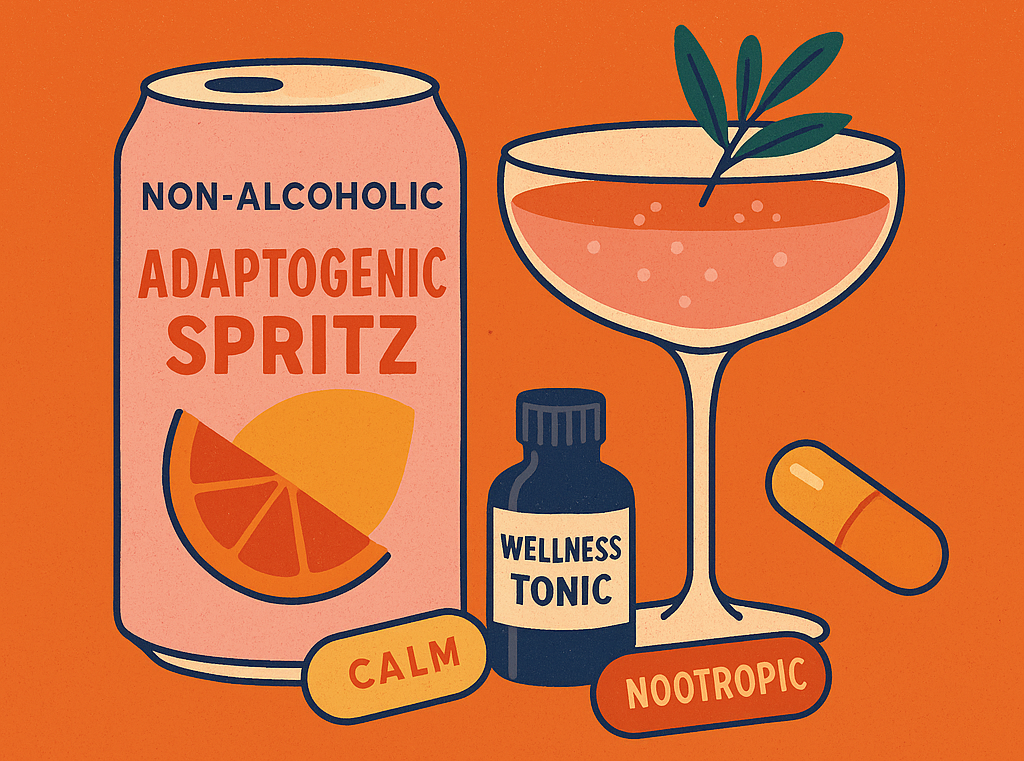The NoLo trend is booming, but is it really about wellness? We unpack how brands rebranded sobriety as a status symbol—one overpriced spritz at a time.

The Art and Science of Marketing Influence
Marketing is everywhere – from billboards on the highway to sponsored posts on our social media feeds. All this noise, all the messages, it’s harder than ever for marketers to break through and get you to like, subscribe, and buy now.
A lot of people will say ads don’t work on them, they would never fall for that, or that marketing is just a waste of time, but the truth is, none of us are that special. Of course we can be influenced. Marketers just need to hit us with the right message, at the right time, for the right product, and we respond.
Influencing consumer behavior – they know what we want
Marketers me spend a lot of time and money researching consumer behavior, trying to figure out what makes you tick. They know your core, innate desires, and psychological triggers, whether it’s making you feel hungry with a mouthwatering food commercial, or making you afraid about health problems that, conveniently, they can help you solve.
They use tried and true persuasion techniques, like all the ones we talk about in the FADS Marketing book, because they know that they work. And they are getting even better at targeting us with the data we provide, artificial intelligence, and continued research on human behavior.
Operant conditioning in marketing
From the time we are born, our parents and teachers use positive reinforcement, rewards, and consequences to encourage good behavior and discourage bad behavior. These techniques are based on the principles of operant conditioning, which is a psychological theory that explains how behavior is shaped by rewards and punishments. By providing rewards for certain behaviors and consequences for others, parents and teachers are associating certain actions with positive or negative outcomes. This creates a psychological connection in our minds that can influence our behavior even in the absence of explicit rewards or punishments.
Marketing professionals take advantage of this conditioning, and use similar techniques to influence consumer behavior. Brands and influencers will offer discounts, exclusive content or early access to products as a positive reinforcement of being a member or subscriber and give the impression you’re missing out on some cool stuff if you don’t follow them. By using these techniques, marketers are able to create powerful associations in our minds that can influence our behavior, even when we are not consciously aware of it.
Motivating consumers with motivational interviewing
Motivational interviewing is a technique often used in healthcare, or therapy, based on the idea that true change comes when we are motivated by our own goals. We have all probably met people who could only be convinced an idea was good if you tricked them into thinking it was their own idea. Motivational interviewing is kind of like that. By getting you talking about a problem, like needing to change your diet, they can reflect all the things you say you want back at you to help you identify why you haven’t changed your diet, and what you might be able to do differently.
Great sales teams often use motivational interviewing to help you see the value of their product or service, and to help overcome resistance to making a purchase. You see this effective approach often used in product demonstrations and one-on-one sales calls. They get you talking about your challenges, how your current solution kind of sucks, and before you know it, they are showing you how their thing solves every one of those challenges.
Nudge theory in marketing
Nudge theory, a concept that originated in behavioral economics, suggests that small changes in the environment can influence people’s behavior in a positive way without limiting their freedom of choice. The theory is based on the idea that people are often not fully rational in their decision-making, and that small nudges can help guide them towards making better choices.
Nudge theory is often used in public policy, marketing and design, to encourage people to make healthier choices, save money, and be more environmentally friendly. It is often used by governments and other organizations to help people make better decisions without resorting to heavy-handed regulation or coercion.
In fact, you have definitely been influenced by nudges if you have auto-enrolled in a 401(k), taken advantage of the gym discount your insurance provides, or thought about how you should find a trash can instead of littering.
It’s all around us – even social media influencers are using nudge theory when they subtly suggest certain actions or behaviors, such as using specific hashtags or promoting a certain product. Understanding how influencers use these techniques can help individuals make more informed decisions about the content they consume and the products they purchase.
Neuromarketing and digital marketing: influencing consumer behavior with science
Neuromarketing is a relatively new field looking at how our brains respond to marketing stimuli. By using tools like brain scans and biometric data, neuromarketing experts are able to understand things like what triggers a consumer’s emotional response to an ad, or how likely they are to make a purchase based on certain colors or imagery.
By understanding how our brains process certain images or messages, marketers can create ads that are more likely to resonate with you and hit all the right emotional buttons. And with the amount of data they have access to means they can create highly personalized digital campaigns that are tailored to target your specific needs and desires. They know what we want, how we want it, what time we’re usually thinking about it, and they are ready to make sure their ads hit the spot.
Influence isn’t all bad though, is it?
It’s important to remember that all of these influences are not just about the products being sold, but about the way we think and feel about ourselves and our place in the world. It’s not always bad, sometimes influence can actually help us achieve our goals, solve problems or overcome obstacles.
But not everyone has our best interest in mind. Profit is a powerful drug, and while there are ethical marketing professionals, there are also grifters and con artists out there too. Understanding how we are being influenced helps us to be more aware of and resistant to manipulative tactics used by others.
By understanding the psychology and strategies behind influence, we can better navigate the world around us and make decisions that truly reflect our own desires and needs (and become better influencers ourselves).
They've got their hooks in you.
FADS rise quickly, burn hot and fall out. They say you're fat, you're no fun, you need to relax, and you might even die alone.
In fact, FADS bank on the fact that you already believe all of that.
Ready to learn how it works?


